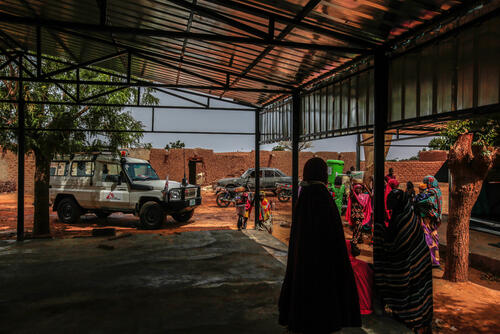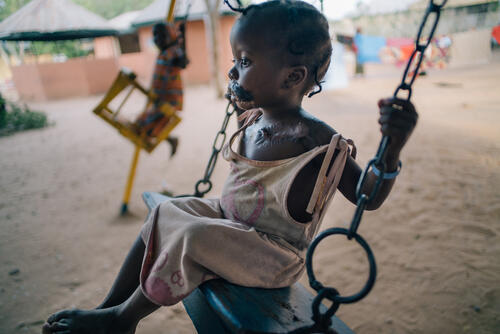People’s lives have been disrupted by violence and crime, while regular disease outbreaks and malnutrition continue to endanger the lives of thousands of children. Over 3 million people have been driven from their homes in Nigeria’s northwest, northeast, and north central regions.
MSF has been responding to disease outbreaks and emergency health needs in Nigeria since 1996, focusing on maternal and paediatric healthcare throughout the country. Our nutritional activities in the northwest and northeast continue to grow as we see more patients for a large, and largely ignored, malnutrition crisis that is pushing people to their limits.
What we're doing in Nigeria

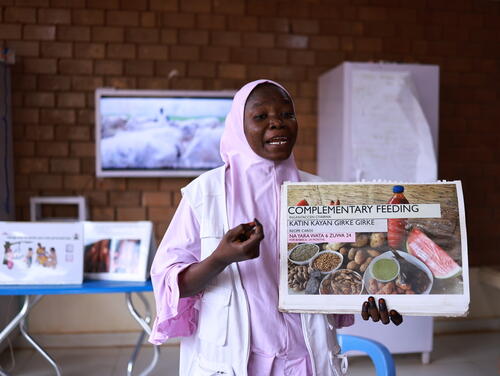
Spiralling violence and severe poverty, exacerbated by increased competition over depleting resources – which is a result of climate change – have left many people vulnerable to chronic cycles of acute malnutrition. In 2024, our teams continued to focus on nutrition activities, working in 33 outpatient and 10 inpatient therapeutic feeding centres across five states in northwest Nigeria; Zamfara, Sokoto, Katsina, Kano and Kebbi. In Zamfara state we treated 65,000 children for malnutrition in 2024. We also increased our response in the northeast, tripling our bed capacity in Maiduguri following a surge in cases, and doubling it in Kafin Madaki hospital, Bauchi state.
As the number of malnutrition cases continued to rise at an alarming rate, we continue to speak out and advocate for more to be done, calling on the government and other non-governmental organisations to increase their assistance to affected people, particularly in the northwest, where the crisis remains largely unrecognised.

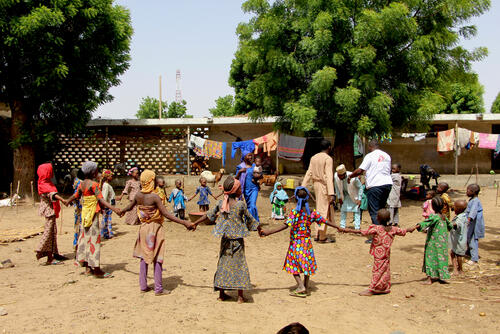
In Nigeria’s northeast, thousands of people have been killed in fighting between armed opposition groups and the Nigerian army. People are unable to farm or sell their goods and mass displacement has resulted in catastrophic living conditions. Access to healthcare is limited, and many people may not to seek healthcare as they risk death and injury on their way to facilities. The Northwest has seen a significant increase in violence and insecurity, with hundreds of people being killed and kidnapped.
Our support for displaced people and host communities includes maternal and paediatric care, mental health support, treatment of malnutrition, support for survivors of sexual violence, and provision of water and sanitation, essential items and shelter.

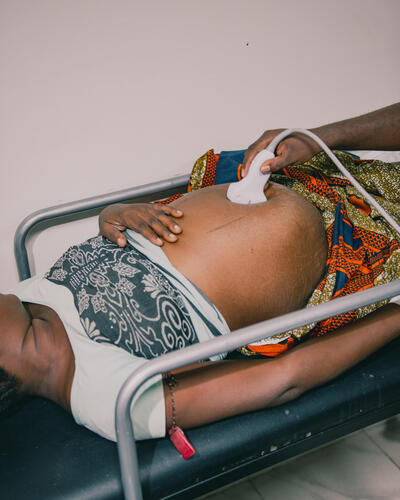
Nigeria has one of the worst maternal death rates in the world, only following behind South Sudan and Chad. According the latest UN data, which is from 2020, there are over 1,000 deaths for every 100,000 live births.
In 2024 we opened a referral hospital in Maiduguri, Borno state, for complicated deliveries and neonatal care. In a collaborative effort, staff from both MSF and the Ministry of Health are supporting pregnant women who are suffering from a range of complications such as pre-eclampsia, malaria and anaemia. We also conduct obstetric and neonatal activities, including surgery for conditions such as obstetric fistula, at Jahun General hospital in Jigawa state.
In Kano state, our teams support two general healthcare centres and a clinic for maternal and child health, while in Cross River, we provide emergency obstetric and neonatal care. In Sokoto and Zamfara, where communities face high levels of insecurity and violence-related injuries, our teams support survivors of sexual violence.

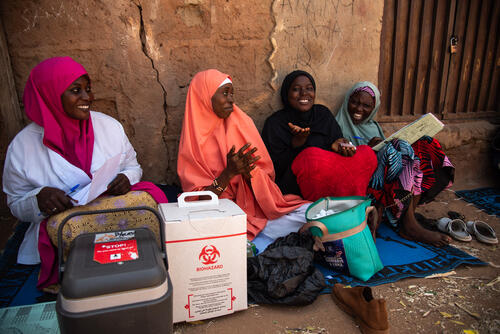
In 2024 we saw a number of cholera outbreaks across Nigeria and our teams responded in Borno, Sokoto and Bauchi states by setting up cholera treatment centres and units.
We see a number of recurring diseases every year in Nigeria, including measles, malaria, diphtheria and Lassa fever. In addition to responding to outbreaks, we conduct preventive activities. For malaria this means conducting indoor residual spraying, a type of chemical treatment that targets mosquitoes inside people’s homes. In Sokoto and Zamfara states we ran vaccination campaigns in 2024 and are now calling for these campaigns to be carried out across the country to curb the spread of preventable diseases.

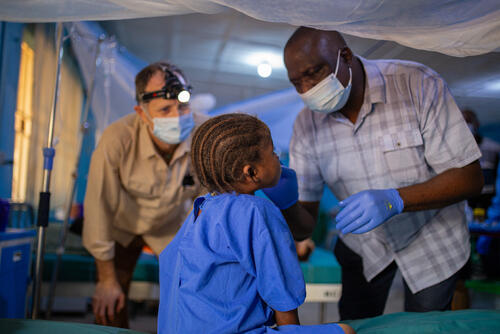
Since 2014, we have supported the Noma Children’s hospital in Sokoto, in northwest Nigeria, by providing reconstructive surgery, nutrition and mental health support, as well as conducting community outreach activities, with a focus on early detection. Most patients who contract noma ─ a disfiguring and deadly infection if not treated on time ─ are children under six years old, whose immune systems have been weakened by malnutrition.
MSF supported the government in the drafting of the National Noma Control Plan, which aims to raise awareness about the disease. In 2023, after long-term advocacy efforts by our teams, noma was included in the World Health Organization’s Neglected Tropical Diseases list. The inclusion of noma is a significant milestone, as it will amplify global awareness, stimulate research and funding, and boost efforts to control the disease.

Our activities in 2023 in Nigeria
Data and information from the International Activity Report 2023.
3,058
3,058
74.4 M€
74.4M
1996
1996
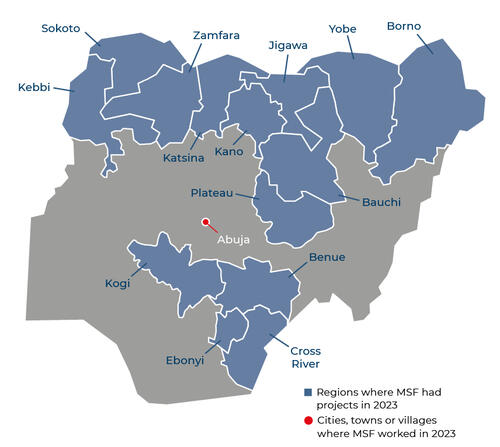

1,203,600
1,203,6
409,600
409,6
193,900
193,9

154,600
154,6
52,500
52,5
30,200
30,2

16,400
16,4
14,400
14,4
- Try a different country, year, format, or topic.
- Clear one or more filters



